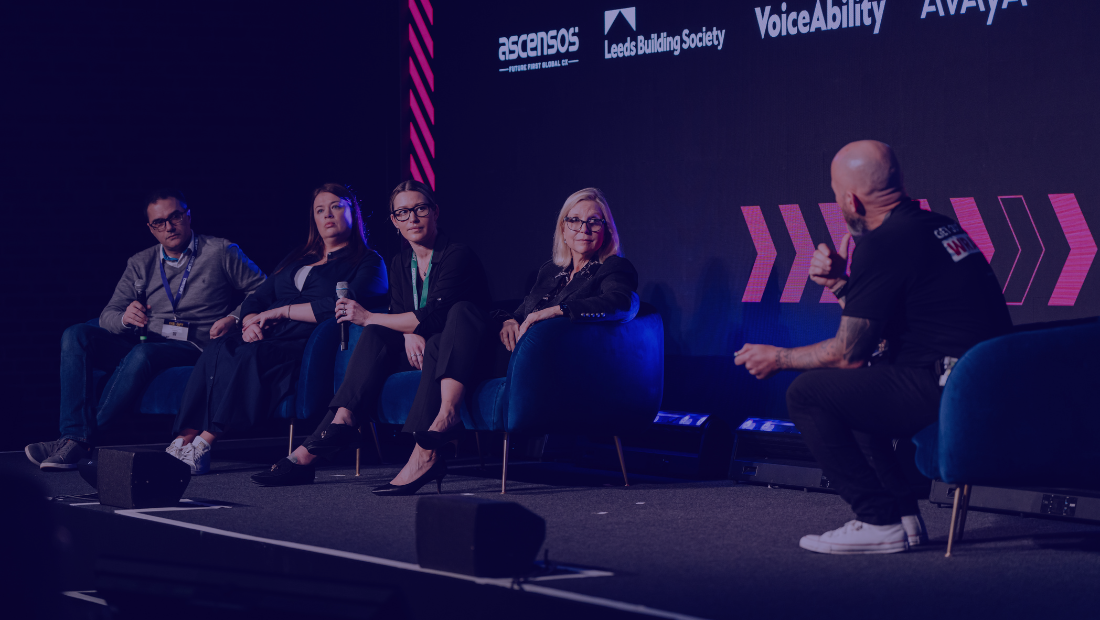Unlocking the Power of Empathy: Insights from Industry Leaders on Addressing Vulnerability in the Contact Centre
05/23/2024 11:40
I hosted a really thought-provoking panel discussion recently at Sabio's Disrupt event in London, joining executives from across sectors to explore the critical topic of vulnerability in the contact centre.

The panel, featuring leaders from global tech, outsourcing, financial services, and nonprofit organisations, delved into the evolving definition of vulnerability, its impact on colleagues and customers, and the role that cutting-edge technology plays in creating a more empathetic and supportive environment.
The Power of Data in Understanding Vulnerability
As the discussion unfolded, Liz Millington, Head of Digital Transformation at Ascenos, shared fascinating insights into how her organisation leverages data to better understand and address vulnerability. By harnessing the power of AI and analytics, they've identified key vulnerability topics, from physical ailments to circumstantial challenges and growing financial pressures. This granular data enables them to provide tailored support to agents, empowering them to navigate complex client interactions with greater sensitivity and skill.
Reframing the Vulnerability Language
The panel also tackled the importance of language in the context of vulnerability. As Allon Moses, Director if IT & Data at VoiceAbility, eloquently put it, “It's not a person that's vulnerable. It's the situation and the circumstances that they find themselves in that can make them vulnerable.”
This shift in perspective – from labeling individuals as vulnerable to recognising the external factors that contribute to vulnerability – is a powerful one. By reframing the conversation, organisations can foster a more inclusive, empathetic approach to customer service.
Technology as an Enabler of Empathy
Throughout the discussion, the panel explored the intersection of vulnerability and technology. Far from being a cold, impersonal force, the right technology can actually enhance the human connection between agents and customers. Noise reduction solutions, for example, allow agents to focus solely on the conversation at hand, free from distractions. AI-powered agent wellness tools can detect signs of stress or fatigue, prompting supervisors to offer timely support. By streamlining systems and reducing administrative burdens, technology frees agents to spend more time engaging meaningfully with customers.
The Business Case for Prioritising Agent Well-Being
A recurring theme throughout the session was the paramount importance of agent well-being. In an industry plagued by high turnover rates, investing in the emotional and mental health of frontline staff isn't just the right thing to do – it's a sound business strategy. As Kelly Shippen, Head of Contact Centres at Leeds Building Society shared, their organisation's commitment to supporting neurodiverse colleagues has not only transformed individual lives but has also driven process improvements that enhance the customer experience. Happy, healthy agents are the foundation of exceptional service.
Cultivating a Culture of Openness and Empathy
Ultimately, the panel's insights underscored the need for contact centres to foster a culture of openness, transparency, and empathy. By creating an environment where colleagues feel safe to share their own experiences with vulnerability, organisations can tap into a well of insights and drive meaningful change. As Kelly again noted, their team's willingness to open up about neurodiversity has skyrocketed from one colleague to 15% of the contact centre staff in just 12 months. This cultural shift has a ripple effect, infusing customer interactions with greater patience, understanding, and humanity.
As I closed the session, one thing was abundantly clear: in the face of evolving customer needs and societal pressures, vulnerability can no longer be an afterthought in the contact centre.
By harnessing the power of data, reframing language, embracing enabling technologies, prioritising agent well-being, as well as cultivating a culture of empathy, organisations can rise to the challenge and deliver the kind of deeply human experiences that resonate long after the call ends.

